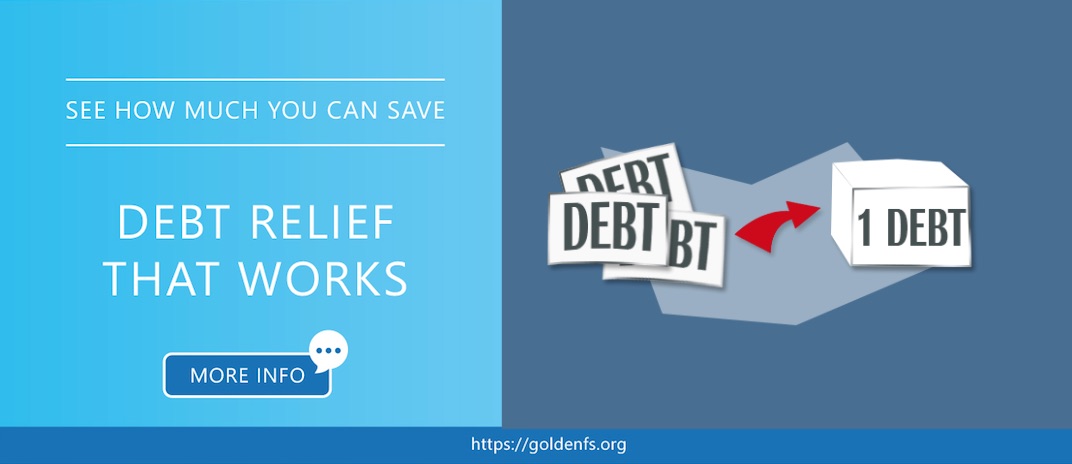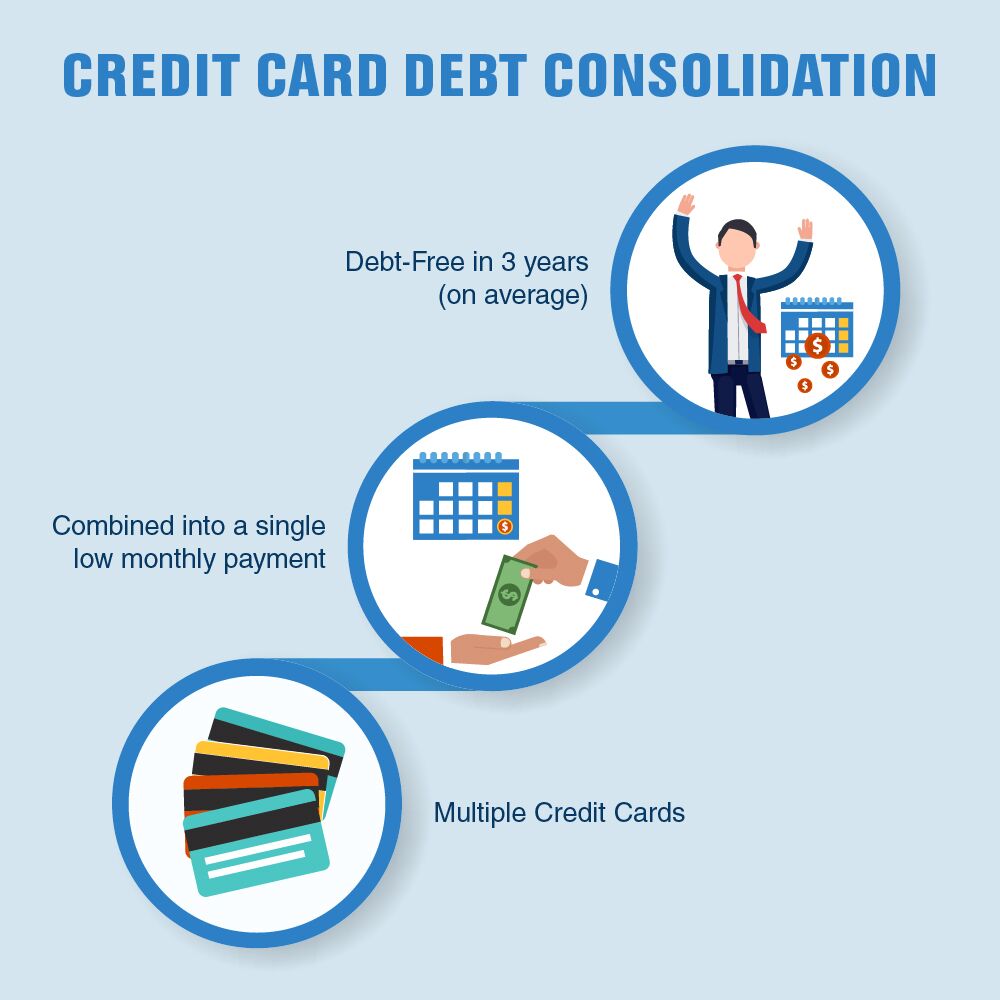The Benefits of Debt Consolidation Credit Cards: A Smart Choice for Managing Credit Card Debt
In today’s financial landscape, many individuals find themselves grappling with the burden of credit card debt. According to recent statistics from the Federal Reserve Bank of New York, as of 2023, credit card debt in America has reached a staggering $986 billion [source: Federal Reserve Bank of New York]. If you are among those facing this challenge, exploring effective debt relief options is crucial to regain control of your financial well-being.
One popular solution that offers significant advantages is debt consolidation credit cards. These specialized credit cards can provide a path to better manage and overcome credit card debt. In this article, we will delve into the benefits of debt consolidation credit cards and explain why they can be a smart choice for individuals seeking relief from overwhelming credit card balances.
Need a debt consolidation credit card?
Debt Consolidation Credit Cards PROS:
- You can use a low-interest debt consolidation credit card to pay off high-interest cards.
- Debt consolidation credit cards can save money by reducing the interest you pay each month.
- At times a debt consolidation credit card can even lower your monthly payment.
- Credit scores can increase by paying off multiple credit card balances at a given time.
- And the best part about a debt consolidation credit card is that it simplifies the bill-paying process by consolidating all of your debt into one “single debt.”
Debt Consolidation Credit Cards CONS:
- There are other debt-relief options that can save you more money. Consider the top 20 best debt relief programs for 2023.
- You must have a high credit score (Above 715 FICO) to qualify for a low-interest balance transfer credit card. Most consumers who are struggling with debt won’t qualify.
- Debt consolidation credit cards usually come with a low-interest rate, BUT only for the introductory time period. The rate goes up (after 12-18 months)!
- Debt consolidation credit cards often include annual fees and high rates.
Related Articles:
The easiest way to find out what your debt relief options are — is to contact an IAPDA Certified Debt Relief Professional.
IAPDA Certified Debt Counselors Can Give You All Options at (866) 376-9846
Is consolidating your credit cards onto another credit card your best option?
No, it is not! There are more effective debt relief options that can save you more money.
Consumer credit counseling is also an option that consolidates your payments and lowers your interest rates. To learn about all of your credit card relief options, visit the following page next.
How Can Debt Consolidation Credit Cards Affect Credit?
Utilizing a debt consolidation credit card to pay off other credit cards and debt can actually improve your credit score. Despite incurring new debt on one card, you are simultaneously paying off multiple debts. The positive aspects outweigh the single negative.
Can you consolidate credit card debt with bad credit?
To be approved for a low-interest credit card, you typically need a minimum FICO score of 680. Additionally, your balances cannot be maxed out on all your other credit cards, and you must not have had any late payments in the past six months on your credit report.
However, if you already possess another low-interest credit card, you can transfer your high-interest credit cards onto the low-interest card, resulting in a win-win situation. This option is available even with bad credit since you already have the card.
FAQs:
Does consolidation hurt your credit?
Consolidating your debt through a debt consolidation credit card or other debt consolidation methods typically does not directly harm your credit. In fact, it has the potential to positively impact your credit score over time. However, it is essential to understand how debt consolidation may affect your credit and the factors involved:
- Credit Utilization: One factor that influences your credit score is your credit utilization ratio, which is the amount of credit you are currently using compared to your total available credit. When you consolidate your credit card debt, it can help lower your overall credit utilization ratio, which may have a positive impact on your credit score.
- On-Time Payments: Making timely payments on your debt consolidation credit card is crucial for maintaining a good credit score. Consistently paying the required monthly amount can demonstrate responsible financial behavior and contribute to an improved credit history.
- Credit History Length: Opening a new debt consolidation credit card or loan may slightly affect the average age of your credit accounts. However, the impact is typically minimal, and as you continue to make timely payments and maintain a positive credit history, the potential negative effect on your credit score diminishes over time.
- Credit Inquiries: When you apply for a new debt consolidation credit card or loan, the lender may perform a hard inquiry on your credit report. This inquiry can have a temporary and minor impact on your credit score. However, if you shop around and submit multiple applications within a short period, the credit scoring models may consider them as a single inquiry to minimize the impact.
How do I combine all my debt into one payment?
Combining all your debt into one payment can help simplify your finances and make it easier to manage your debt. Here are several methods you can consider to consolidate your debt into a single payment:
- Debt Consolidation Loan: You can apply for a personal loan from a bank, credit union, or online lender to pay off all your existing debts. With a debt consolidation loan, you receive a lump sum that covers your outstanding debts, and then you make fixed monthly payments on the loan. This allows you to streamline multiple payments into one, potentially with a lower interest rate.
- Balance Transfer Credit Card: If you have high-interest credit card debt, you can transfer the balances to a single credit card with a lower or 0% introductory interest rate. This enables you to consolidate your credit card debt into one payment. However, be mindful of any balance transfer fees and the duration of the promotional interest rate.
- Home Equity Loan or Line of Credit: If you own a home and have built up equity, you may be able to use it to secure a loan or line of credit. These options typically offer lower interest rates, and you can use the funds to pay off your debts and make a single payment towards the loan or line of credit.
- Debt Management Plan (DMP): A DMP is a program offered by credit counseling agencies. They negotiate with your creditors to lower interest rates and develop a repayment plan that combines all your debts into one monthly payment. You make the payment to the credit counseling agency, and they distribute the funds to your creditors.
- 401(k) Loan: If your employer-sponsored retirement plan allows it, you may be able to borrow against your 401(k) savings. This option should be approached with caution, as it involves potential risks, such as early withdrawal penalties and the possibility of depleting your retirement savings.
Is it hard to qualify for debt consolidation?
The difficulty of qualifying for debt consolidation depends on several factors, including the method of consolidation you choose and your overall financial situation.
Here are some factors to consider:
- Credit Score: Lenders typically look at your credit score to assess your creditworthiness. A higher credit score generally improves your chances of qualifying for a debt consolidation loan or a balance transfer credit card with favorable terms. However, there are options available for individuals with lower credit scores as well.
- Income and Debt-to-Income Ratio: Lenders also consider your income and debt-to-income ratio (DTI). A higher income and lower DTI can increase your eligibility for a debt consolidation loan or other consolidation options. They want to ensure that you have sufficient income to make the consolidated payment along with your other financial obligations.
- Collateral: Some consolidation methods, such as home equity loans or secured loans, may require collateral, such as your home or other assets. Having collateral can improve your chances of qualifying, but it also poses the risk of losing the collateral if you default on the loan.
- Employment Stability: Lenders may assess your employment history and stability. A stable job and steady income can boost your chances of qualifying for a debt consolidation loan.
- Debt Type: The type of debt you have can affect your eligibility for certain consolidation options. For example, some lenders may be more willing to consolidate credit card debt compared to student loan debt.
Consider Credible Loans if you’re interested in comparing loan rates and offers. This is a free online marketplace that lets you compare debt consolidation loan offers within minutes.
What does your credit score have to be to consolidate debt?
At Credible.com, your credit score can be as low as 600 to qualify for a personal loan.


